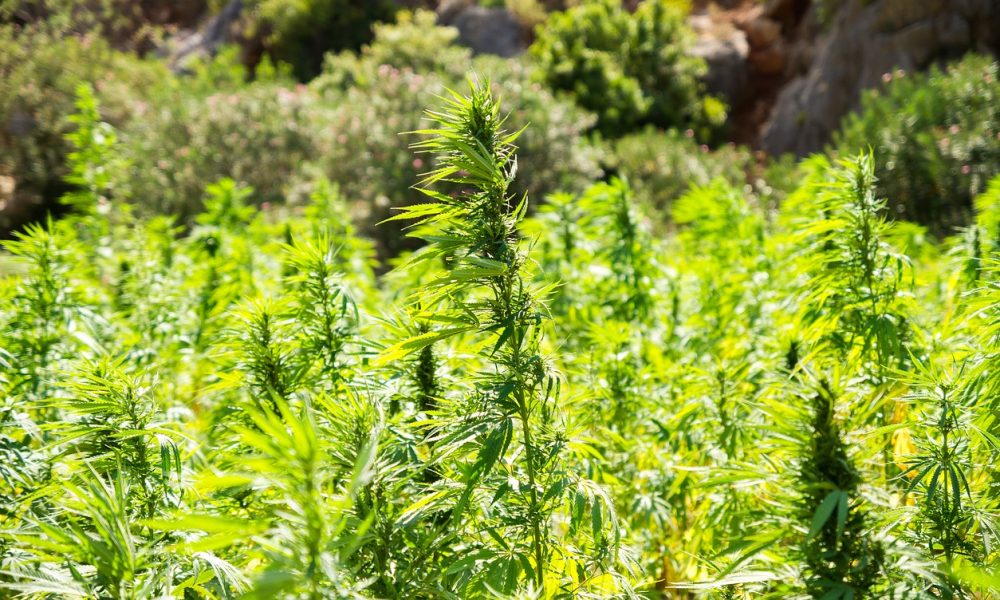The Law Library of Congress, the largest law library in the world, recently issued a milestone report on hemp regulations, comparing how countries around the world approach issues such as cultivation, product testing and licensing legal businesses.
“Demand and production of hemp are growing worldwide and are forecast to show significant growth in the next decade,” Tariq Ahmad, a foreign law specialist for the Law Library of Congress, wrote in a blog post for the library. The report, he said, “explores the regulation of industrial hemp in select jurisdictions around the globe.”
While Congress effectively legalized the cultivation and use of hemp by removing it from the Controlled Substances Act in 2018, federal agencies and policymakers continue to grapple with how to regulate the plant and its derivative products. The Food and Drug Administration (FDA), Department of Agriculture (USDA) and Drug Enforcement Administration (DEA) have been engaged in lengthy rulemaking and advisory processes, and congressional lawmakers are already considering further revising laws for the crop via the 2023 Farm Bill.
The value of industrial hemp produced legally in the United States was about $824 million in 2021, according to USDA figures released last year.
The new 134-page report, titled simply “Regulation of Hemp,” was released in November but is just now being publicized by the Library of Congress in the new blog post. The document offers a comprehensive comparison of hemp regulations in various countries, with particular attention paid to 15 specific jurisdictions. It looks as far back as 1947, when Japan legalized hemp for restricted purposes, and includes changes as recent as Colombia’s legalization of the plant last year.
“In the select jurisdictions, all jurisdictions appear to allow cultivation of hemp (or cannabis more widely) for very controlled and restrictive purposes (including medical, scientific, industrial, and/or horticultural purposes),” wrote Ahmad, a contributor to the report.
The document compares the jurisdictions’ definitions of hemp (such as the allowable amount of THC, which in the U.S. is limited to less than 0.3 percent), testing requirements, restrictions on cultivation and rules regarding product manufacturing. In a briefer form, an appendix also identifies more than 90 jurisdictions, from Algeria to Zimbabwe, where hemp cultivation is legal in some respect.
As staff at the Library of Congress look to how other countries regulate hemp, policymakers in the U.S. have their hands full navigating an array of related issues.
In January, FDA announced that it will not be creating rules to allow CBD to be marketed as a dietary supplement or food item despite repeated calls for administrative action from lawmakers, advocates and other stakeholders. Instead, the agency said that it wants to “work with Congress on a new way forward.” Officials also denied three citizen petitions requesting rulemaking for the marketing of CBD.
The announcement came just days after the agency released finalized guidance focusing on developing cannabis-based pharmaceuticals and also on the heels of a key Republican lawmaker, Rep. James Comer (R-KY), pledging to take FDA officials to task for failing to enact CBD regulations.
U.S. Reps. Morgan Griffith (R-VA) and Brett Guthrie (R-KY) also sent a letter to FDA Commissioner Robert Califf in September, demanding answers over the continued lack of regulations for CBD for those purposes.
Last week, the Substance Abuse and Mental Health Services Administration issued an advisory warning of the “potential harms, side effects, and unknowns” of CBD as more Americans use the popular cannabinoid.
At DEA, meanwhile, officials recently weighed on on two other cannabinoids that can be derived from legally grown hemp: delta-8 THC-O and delta-9 THC-O, which are not naturally found in the cannabis plant but can be produced from other natural cannabinoids. DEA said that because the two cannabinoids “do not occur naturally in the cannabis plant and can only be obtained synthetically,” they do not fall under the definition of hemp and are therefore considered illegal controlled substances.
FDA also recently touted its role helping a state agency crack down on a company selling delta-8 THC gummies that they said are linked to “serious adverse events.”
Meanwhile USDA has launched a weekly newsletter to provide “unbiased, timely, and accurate data” on the legal hemp industry. The newsletter features updated information about retail prices for hemp products as well as the amount of hemp commodities imported into the U.S. for the week and year-to-date.
A recent report, for instance, found that retail ads for hemp saw “a 79 percent increase from last week and a 493 percent increase over the same week last year.”
The new cannabis crop report joins national newsletters that already exist for honey and specialty crops, and local reports dealing with commodities such as pecans, apples and cut flowers.
CBD Could Reduce Craving For Nicotine And Help Tobacco Smokers Quit, Study Finds
Photo courtesy of Pixabay.
Read the full article here

